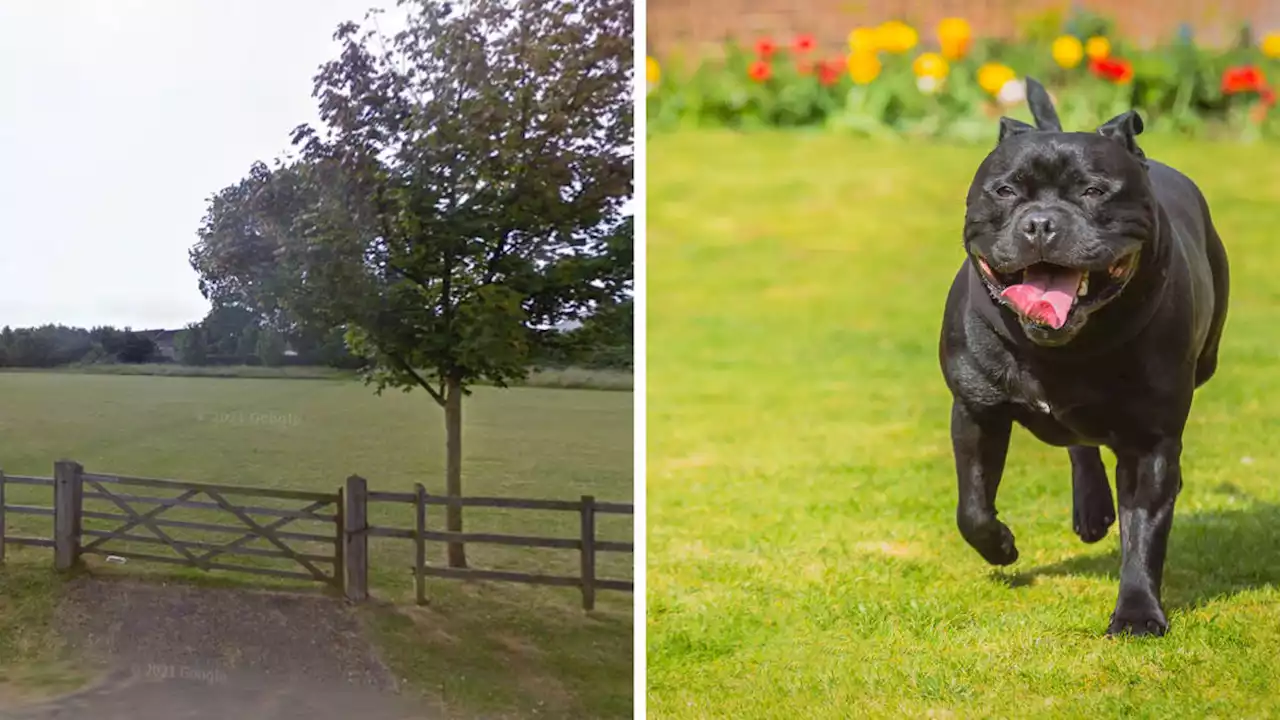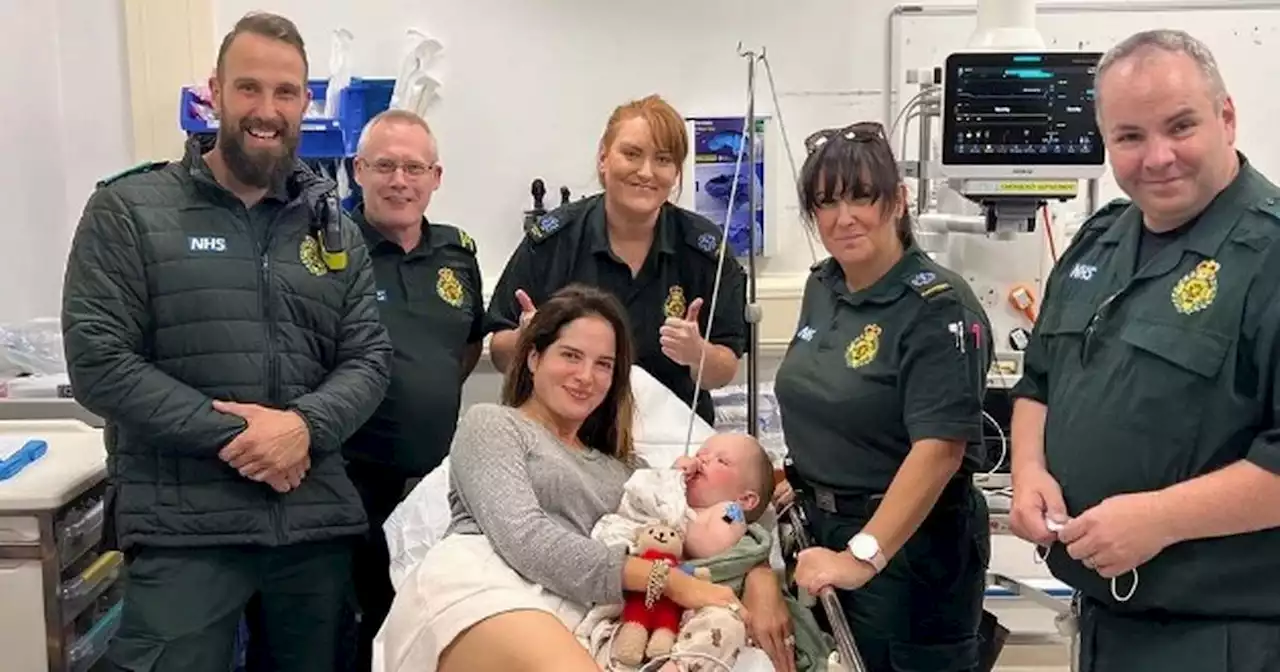A DOG brought back a severed human hand to its owners – leading to the shocking discovery of a decomposing body. Authorities in Liberty County, Devers, Texas, immediately rushed to the grueso…
Mystery of human hand found by dog as discovery leads to remains in ‘advanced stage of decomposition’ behind pet’s homeA DOG brought back a severed human hand to its owners - leading to the shocking discovery of a decomposing body.
Authorities in Liberty County, Devers, Texas, immediately rushed to the gruesome discovery after the pet's stunned owners called for help at around 4:45pm last Thursday.Following a sweep of their home, investigators confirmed the hand did belong to a human. But soon after that, the police chillingly found more human remains in a wooded area about 100 yards behind the property.
A police statement said: “The remains were in an advanced stage of decomposition therefore it was not possible to determine the race or age of the body but the clothes would suggest the body would be male.”READ MORE TEXAS STORIES
Canada Latest News, Canada Headlines
Similar News:You can also read news stories similar to this one that we have collected from other news sources.
 Girl, 13, left needing reconstructive surgery after vicious dog attackA 13-year-old girl has been left needing reconstructive surgery after a dog seriously injured her.
Girl, 13, left needing reconstructive surgery after vicious dog attackA 13-year-old girl has been left needing reconstructive surgery after a dog seriously injured her.
Read more »
 Alesha Dixon heartbroken as beloved dog Daisy dies after 13 yearsBritain’s Got Talent judge Alesha Dixon has shared the devastating news that her dog Daisy has passed away aged 13, sparking people to send their condolences
Alesha Dixon heartbroken as beloved dog Daisy dies after 13 yearsBritain’s Got Talent judge Alesha Dixon has shared the devastating news that her dog Daisy has passed away aged 13, sparking people to send their condolences
Read more »
 Glasgow woman distraught after 'danger-prone' dog has 'unusual' injuryA Glasgow vet came to the rescue of a dog and her distraught owner when she sustained a very unusual injury.
Glasgow woman distraught after 'danger-prone' dog has 'unusual' injuryA Glasgow vet came to the rescue of a dog and her distraught owner when she sustained a very unusual injury.
Read more »
 Binky Felstead's son rushed to hospital days after her dog is hit by van driverFormer Made In Chelsea star Binky Felstead has revealed the 'very scary' moment she had no choice but to call 999 after her son Wolfie, one, had a 'bad reaction' to hummus
Binky Felstead's son rushed to hospital days after her dog is hit by van driverFormer Made In Chelsea star Binky Felstead has revealed the 'very scary' moment she had no choice but to call 999 after her son Wolfie, one, had a 'bad reaction' to hummus
Read more »
 UK decides AI still cannot patent inventionsMany experts doubted AI was currently able to invent without human assistance, a consultation found.
UK decides AI still cannot patent inventionsMany experts doubted AI was currently able to invent without human assistance, a consultation found.
Read more »
 Differential Pathogenesis of SARS-CoV-2 Variants of Concern in Human ACE2-Expressing MiceSevere acute respiratory syndrome coronavirus 2 (SARS-CoV-2) has caused the current pandemic, resulting in millions of deaths worldwide. Increasingly contagious variants of concern (VoC) have fueled recurring global infection waves. A major question is the relative severity of the disease caused by previous and currently circulating variants of SARS-CoV-2. In this study, we evaluated the pathogenesis of SARS-CoV-2 variants in human ACE-2-expressing (K18-hACE2) mice. Eight-week-old K18-hACE2 mice were inoculated intranasally with a representative virus from the original B.1 lineage or from the emerging B.1.1.7 (alpha), B.1.351 (beta), B.1.617.2 (delta), or B.1.1.529 (omicron) lineages. We also infected a group of mice with the mouse-adapted SARS-CoV-2 (MA10). Our results demonstrate that B.1.1.7, B.1.351 and B.1.617.2 viruses are significantly more lethal than the B.1 strain in K18-hACE2 mice. Infection with the B.1.1.7, B.1.351, and B.1.617.2 variants resulted in significantly higher virus titers in the lungs and brain of mice compared with the B.1 virus. Interestingly, mice infected with the B.1.1.529 variant exhibited less severe clinical signs and a high survival rate. We found that B.1.1.529 replication was significantly lower in the lungs and brain of infected mice in comparison with other VoC. The transcription levels of cytokines and chemokines in the lungs of B.1- and B.1.1.529-infected mice were significantly less when compared with those challenged with other VoC. Together, our data provide insights into the pathogenesis of previous and circulating SARS-CoV-2 VoC in mice.
Differential Pathogenesis of SARS-CoV-2 Variants of Concern in Human ACE2-Expressing MiceSevere acute respiratory syndrome coronavirus 2 (SARS-CoV-2) has caused the current pandemic, resulting in millions of deaths worldwide. Increasingly contagious variants of concern (VoC) have fueled recurring global infection waves. A major question is the relative severity of the disease caused by previous and currently circulating variants of SARS-CoV-2. In this study, we evaluated the pathogenesis of SARS-CoV-2 variants in human ACE-2-expressing (K18-hACE2) mice. Eight-week-old K18-hACE2 mice were inoculated intranasally with a representative virus from the original B.1 lineage or from the emerging B.1.1.7 (alpha), B.1.351 (beta), B.1.617.2 (delta), or B.1.1.529 (omicron) lineages. We also infected a group of mice with the mouse-adapted SARS-CoV-2 (MA10). Our results demonstrate that B.1.1.7, B.1.351 and B.1.617.2 viruses are significantly more lethal than the B.1 strain in K18-hACE2 mice. Infection with the B.1.1.7, B.1.351, and B.1.617.2 variants resulted in significantly higher virus titers in the lungs and brain of mice compared with the B.1 virus. Interestingly, mice infected with the B.1.1.529 variant exhibited less severe clinical signs and a high survival rate. We found that B.1.1.529 replication was significantly lower in the lungs and brain of infected mice in comparison with other VoC. The transcription levels of cytokines and chemokines in the lungs of B.1- and B.1.1.529-infected mice were significantly less when compared with those challenged with other VoC. Together, our data provide insights into the pathogenesis of previous and circulating SARS-CoV-2 VoC in mice.
Read more »
